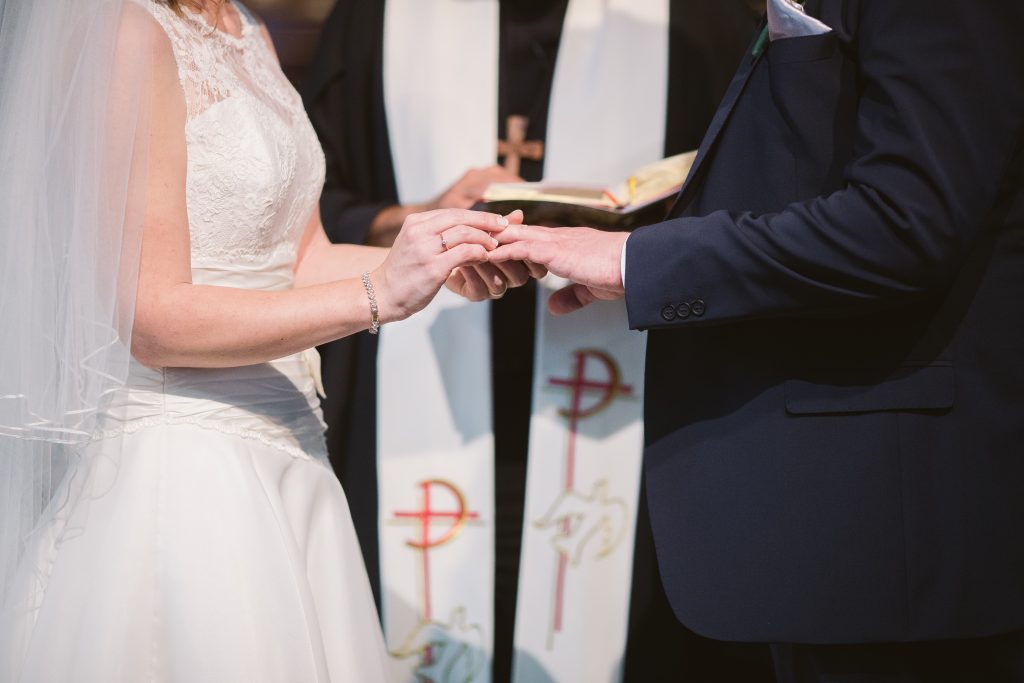In this article, you will learn about the relationship between prenuptial agreements and the Catholic Church. We will provide you with some context to help you understand the different perspectives on this issue. Specifically, we will delve into the debate surrounding prenuptial agreements and its compatibility with Catholic teachings. By the end of this article, you will have a better understanding of the topic and be able to make an informed decision regarding prenuptial agreements in light of your Catholic beliefs.
Prenuptial Agreement And Catholic Church
What is a prenuptial agreement?
Definition of a prenuptial agreement
A prenuptial agreement, also known as a prenup, is a legal contract entered into by a couple before their marriage or civil partnership. It outlines the rights and responsibilities of each party in the event of a divorce or separation, including how assets will be divided, spousal support, and other financial matters. Prenuptial agreements are becoming increasingly common as couples recognize the importance of financial planning and protecting their individual interests.
Purpose of a prenuptial agreement
The primary purpose of a prenuptial agreement is to provide clarity and protection for both parties in the event of a divorce or separation. It allows couples to establish their own terms regarding property division, debt allocation, and other financial matters instead of relying on state laws, which can vary greatly. By clearly outlining these terms in advance, a prenuptial agreement can help prevent lengthy and contentious legal battles.
Benefits of having a prenuptial agreement
There are several benefits to having a prenuptial agreement, especially for individuals with significant assets or complex financial situations. Some of the benefits include:
- Asset protection: A prenuptial agreement can help safeguard individual assets acquired prior to the marriage, ensuring they are not subject to division in the event of a divorce.
- Debt allocation: It allows couples to determine how existing debts, such as student loans or credit card debt, will be allocated between the spouses.
- Financial clarity: By clearly defining each party’s financial rights and responsibilities, a prenuptial agreement can help reduce conflict and promote open communication about finances.
- Spousal support: The agreement can establish limits or guidelines for spousal support or alimony, providing financial security for both parties.
- Protection of children: If either party has children from a previous relationship, a prenuptial agreement can specify the financial support and inheritance rights of those children, ensuring their interests are protected.
Understanding the Catholic Church’s stance on prenuptial agreements
Overview of Catholic teachings on marriage
The Catholic Church views marriage as a sacred and lifelong bond between a man and a woman, symbolizing the union between Christ and the Church. According to Catholic teachings, marriage is intended to be a selfless relationship of love and fidelity, where both spouses are called to mutual respect and self-giving.
The Church’s view on prenuptial agreements
The Catholic Church does not outrightly endorse or condemn prenuptial agreements, as there is no specific teaching on the matter. However, the Church does emphasize the importance of the permanence of marriage and the commitment to the well-being and dignity of each spouse. Prenuptial agreements can potentially conflict with these teachings by creating an atmosphere of distrust and undermining the commitment to a lifelong union.
Arguments for and against prenuptial agreements in the Catholic Church
Proponents of prenuptial agreements argue that they can provide a sense of security and financial stability for both parties, especially in cases where one spouse has significantly more assets or inheritance to protect. They believe that a well-crafted prenuptial agreement can help prevent future conflicts and provide a fair and equitable resolution in the event of a divorce.
On the other hand, some individuals within the Catholic Church argue against prenuptial agreements, raising concerns about their potential to undermine the core values of commitment, trust, and the permanence of marriage. They believe that prenuptial agreements place too much focus on the division of assets and can lead to a lack of commitment or willingness to work through marital challenges.

This image is property of images.unsplash.com.
Prenuptial Agreement And Catholic Church
Can Catholics have a prenuptial agreement?
Permissibility of prenuptial agreements according to Catholic Canon Law
Catholic Canon Law does not explicitly prohibit or endorse prenuptial agreements. Instead, it emphasizes the importance of the marital commitment and encourages couples to uphold the values of love, trust, and self-giving in their relationship. Ultimately, it is up to the couple to discern whether entering into a prenuptial agreement aligns with their personal beliefs and values.
Considerations for Catholics regarding prenuptial agreements
Catholics considering a prenuptial agreement should carefully reflect on their intentions and motivations. It is essential to ensure that entering into such an agreement does not compromise the core values and teachings of the Catholic Church. Couples should prayerfully consider whether a prenuptial agreement is necessary for their specific circumstances, always keeping in mind the importance of trust, commitment, and loving self-sacrifice within their marriage.
Important factors to discuss with a priest or spiritual advisor
Before deciding to pursue a prenuptial agreement, it is crucial for Catholic couples to seek guidance from a trusted priest or spiritual advisor. They can provide valuable insight and help couples navigate the complexities of aligning their personal beliefs with legal considerations. A priest or spiritual advisor can also assist in discerning whether the couple’s intentions and motivations for a prenuptial agreement are in line with Catholic teachings.
Steps to create a prenuptial agreement within the guidelines of the Catholic Church
Seeking guidance from a priest or spiritual advisor
Before drafting a prenuptial agreement, it is advisable for Catholic couples to consult with a priest or spiritual advisor. They can provide guidance and ensure that the couple understands the potential impact of the agreement on their marriage and their commitment to living out the teachings of the Church.
Discussing individual needs and concerns
Both partners should engage in open and honest discussions regarding their individual needs and concerns. This includes sharing details about their financial situations, assets, debts, and any expectations they may have in the event of a divorce or separation. It is essential to approach these discussions with love, understanding, and a willingness to find common ground.
Drafting the agreement with the assistance of a Catholic lawyer
To ensure that the prenuptial agreement aligns with Catholic values, it is recommended to work with a Catholic lawyer experienced in family law. They can help structure the agreement in a way that is fair and considers the concerns of both parties while remaining consistent with the teachings of the Church. The lawyer can also provide guidance on the legal requirements and obligations of the agreement, ensuring its enforceability.

This image is property of images.unsplash.com.
Addressing specific issues in a prenuptial agreement while adhering to Catholic values
Financial provisions and property division
When addressing financial provisions and property division in a prenuptial agreement, it is crucial to consider fairness and equity while recognizing the importance of providing for each spouse’s needs. The agreement should strive to protect individual assets acquired before the marriage while also considering the future financial well-being of both spouses and any children involved.
Child custody and support arrangements
If the couple has children or plans to have children, the prenuptial agreement should address child custody and support arrangements in accordance with the best interests of the child. It is important to prioritize the welfare and upbringing of the children, ensuring that their rights and needs are protected.
Moral considerations and provisions in the agreement
In addition to financial matters, a prenuptial agreement can also include moral considerations aligned with Catholic teachings. For example, the agreement can address the couple’s commitment to faith, fidelity, and raising their children in the Catholic tradition. Including these provisions can serve as a reminder of their shared values and the importance of their spiritual journey together.
Legal considerations and requirements of a valid prenuptial agreement
Understanding the legal enforceability of prenuptial agreements
Prenuptial agreements are subject to state laws, and their enforceability can vary. It is essential to understand the legal requirements and limitations in the jurisdiction where the couple resides. Working with a qualified Catholic lawyer experienced in family law will help ensure that the agreement meets all legal standards and that both parties fully comprehend its implications.
Disclosure of assets and liabilities
To create a valid prenuptial agreement, both parties must provide full and honest disclosure of their assets, debts, and financial information. Failing to disclose relevant information may render the agreement invalid and can lead to legal complications down the line. Full transparency is crucial in maintaining trust and fairness in the agreement.
Conditions for revoking or modifying the agreement
The prenuptial agreement should specify the conditions under which it can be revoked, modified, or terminated. These conditions can include mutual agreement, the birth of children, or other life-changing events. By addressing these possibilities in advance, the couple can ensure that the agreement remains relevant and adaptable to their evolving needs and circumstances.

This image is property of images.unsplash.com.
Exploring alternative options for protecting assets and marriage within the Catholic faith
Marriage counseling and communication
Instead of relying solely on a prenuptial agreement, couples can prioritize open communication and seek marriage counseling to address any concerns, conflicts, or financial uncertainties. By building a foundation of trust and developing healthy communication habits, couples can work together to protect their assets and strengthen their marriage.
Trust and mutual agreement
A strong foundation of trust and mutual agreement can serve as an alternative to a prenuptial agreement. Couples can pledge to work together and make fair decisions in the event of a divorce, giving priority to the well-being and best interests of each other and any children involved. Trusting one another to act with integrity can eliminate the need for a formal legal agreement.
Charitable acts and financial planning
Another alternative to a prenuptial agreement is engaging in charitable acts and financial planning that align with Catholic values. Couples can choose to dedicate a portion of their wealth to charitable causes or establish financial arrangements that support charitable organizations. This approach focuses on selflessness, stewardship, and giving back to the community, rather than solely on individual asset protection.
Challenges and potential criticisms of prenuptial agreements in the Catholic Church
Critics’ viewpoints on prenuptial agreements
Critics argue that prenuptial agreements can undermine the true essence of marriage by shifting the focus from commitment and selfless love to individual financial protection. They contend that such agreements can lead to a lack of trust, compromise the married couple’s ability to freely share their lives, and create an atmosphere of materialism and self-interest.
The societal impact and perception of prenuptial agreements
The societal perception of prenuptial agreements can also be a challenge within the Catholic Church. Some individuals may view such agreements as contradictory to the values of commitment and the permanence of marriage. It is important for couples considering a prenuptial agreement to be aware of how their decision may be perceived by their families, friends, and the larger Catholic community.
Balancing individual rights and beliefs with Church teachings
Finding a balance between individual rights and beliefs and the teachings of the Catholic Church can be a complex task for couples considering a prenuptial agreement. It is important to approach this decision with careful discernment, considering the impact on one’s spiritual well-being and the well-being of the marital relationship. Open and ongoing communication with a priest or spiritual advisor can support this process.
Seeking professional advice for creating a prenuptial agreement compatible with Catholic values
Finding a Catholic lawyer experienced in family law
Catholics considering a prenuptial agreement should seek the assistance of a Catholic lawyer who specializes in family law. This ensures that the lawyer is familiar with the specific concerns and beliefs of the Catholic Church and can provide guidance that aligns with these values.
Consulting with financial and legal advisors
Engaging the services of financial and legal advisors in addition to a Catholic lawyer can provide a comprehensive perspective on the financial implications and considerations of a prenuptial agreement. These professionals can help the couple evaluate their financial situation, explore alternative options, and provide guidance on the legal requirements and implications of the agreement.
Reviewing and finalizing the prenuptial agreement
Before finalizing a prenuptial agreement, it is crucial to review and understand all of its terms and provisions. Both parties should carefully consider the implications and potential consequences of the agreement, ensuring that it fully reflects their intentions and aligns with their personal beliefs and values. It is of utmost importance to enter into the agreement willingly and with a full understanding of its ramifications.
Conclusion
The decision to pursue a prenuptial agreement while adhering to Catholic values is a deeply personal one. It requires careful discernment and consideration of the teachings of the Church, as well as open communication and a commitment to mutual understanding within the marital relationship. Balancing legal protection with spiritual well-being is a complex task, but with the guidance of a priest or spiritual advisor, a Catholic lawyer, and other trusted professionals, couples can navigate this process and make informed decisions that are in line with their personal beliefs and values. Ultimately, it is crucial to approach this decision with love, respect, and a sincere desire to strengthen the marriage and uphold the teachings of the Catholic Church.


